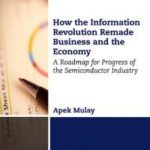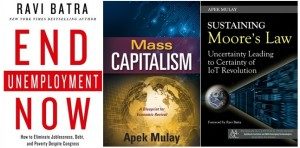The constitutions of most countries generally give a consideration to the fundamental rights which include the right to equality, freedom of expression, freedom of religion, cultural and educational rights, etc. Given the huge problem of unemployment and poverty in global economy, hasn’t the time arrived to raise this bar? Rights pertaining more to the material level of life should also receive a due consideration in a country’s constitution- Every individual should also have an equal right to have a good purchasing power so as to procure adequate amount of food, clothes, housing, medical aid and education and other essentials that have now become absolutely necessary for existence.
The theory of Mass Capitalism, unlike European social democracy or American liberal democratic ideas, is not a social welfare system. Although, It promotes full employment for local people by means of ensuring a maximum utilization of local resources as the basis of service and industry, it does not believe in offering free dole-outs as anything that is given for free loses its value and somebody else pays for the same. Mass Capitalism offers solutions to make it feasible to offer it as a basic right to all residents in form of minimum essentials for their existence. Further, what counts as the minimum could vary and increase with the development of the economy; for example, a cave man could live without WiFi, but nowadays WiFi has become an necessity of today’s tech savvy civilization. This basic right should be arranged by means of using local tax-dollars for local economic development. Unemployment is today a critical economic problem worldwide, and poor employment leads to countless other problems which drags down nation’s well-being.
The dole-outs that are offered in form of Welfare, in order to support poor and unemployed people in many nations, is poor economic policy. Such policies result in people becoming lethargic, and beginning to demand an income simply because they exist, as happened in northern Europe in the 1990s. Additionally, Taking money out from social security trust fund of citizens to give tax cuts to wealthy is also a fraud that should not be encouraged. To avert this form of deterioration as well as to encourage the willingness of the society to make contributions to others’ well-being through creation of more employment opportunities, Mass Capitalism offers solutions to enhance the purchasing power of people, by establishing true free markets, so that people can in turn purchase the minimum necessities by means of working according to their capacity. In this way, Mass Capitalism DOES promote welfare through guaranteed employment, but DOES NOT promote welfare for free, except in those relatively few cases where a person may be severely disabled and hence incapacitated in offering his or her services.
Mass Capitalism supports a productive use of technology to reduce the working hours of people while still offering them decent wages. This way, workers in Mass Capitalism have a lot of spare time and hence surplus energy—which in some countries is NIL owing to the long working hours required just to procure life’s basic necessities—to pursue subtler pursuits, research and development, art, the accumulation of knowledge, leisure (possibly alleviating stress and health problems), sports, spiritual development, etc. The productive utilization of technology has been appreciated by world renowned macroeconomist, Professor Ravi Batra.
The minimum requirements of every person are generally the same (food, living quarters, clothing, etc.), but diversity is also the law of nature. Special amenities should therefore be provided to the meritorious as an incentives so that a diversity in skills and intelligence is fully utilized and a steady growth of talent is encouraged in order to contribute its best for human development. What counts as an amenity or incentive varies according to the society and times. This is because what used to be an incentive in past has now become a necessity. But at the same time there should be constant effort to reduce the gap between the amount of special incentives offered by a society and the minimum requirements, which the society ascertains to be the bare minimum necessities, at any given time.
One such innovative approach to reduce this gap between minimum necessities and maximum amenities has been presented in my upcoming book “Sustaining Moore’s Law : Uncertainty Leading to a Certainty of IoT Revolution“. This is essential to ensure a grand success of the 4th industrial revolution ( of The Internet of Things ) by avoiding the mistakes which have led to the 3rd industrial revolution (of mass production of modern electronics from progress of Moore’s Law) to arrive at a standstill due to a Global Macroeconomic Crisis . If an economic adjustment is pursued along these lines, it will assist in the physical, mental, and spiritual evolution of humanity, and allow human society to develop neo-humanistic sentiment for world fraternity in place of narrower sentiments, which have resulted into unnecessary wars and destruction around the world.



Recent Comments